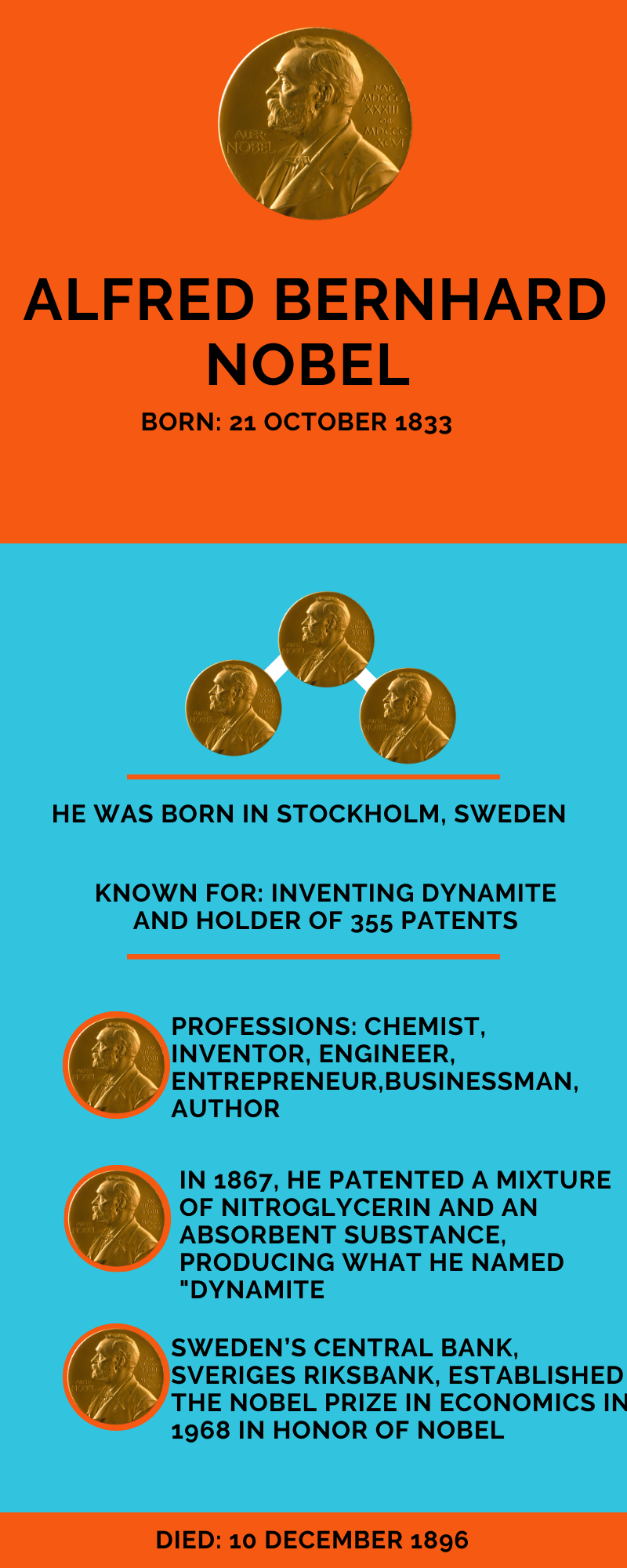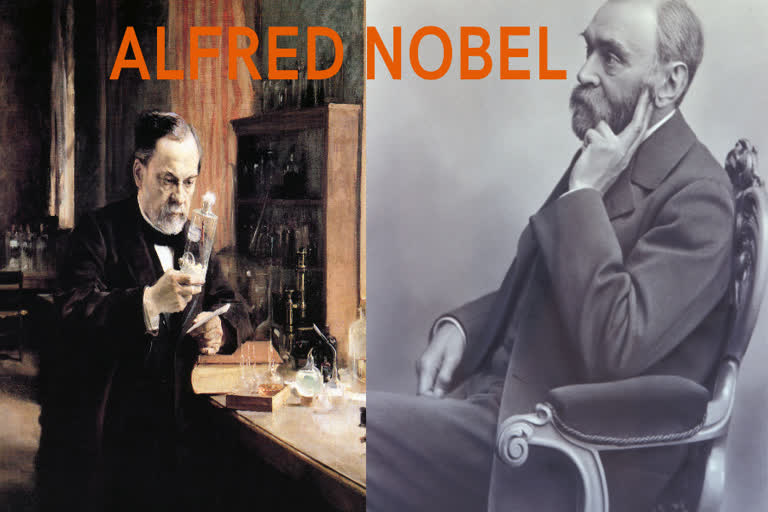Hyderabad: Born in Sweden, chemist Alfred Nobel worked at his father's arms factory as a young man. Intellectually curious, he went on to experiment with chemistry and explosives. In 1864, a deadly explosion killed his younger brother. Deeply affected, Nobel developed a safer explosive: dynamite. Nobel used his vast fortune to establish the Nobel Prize.

This invention was first created with the purpose of making rock blasting safer for workmen but was then turned into a weapon; this prompted him to establish the Nobel Peace Prize in recognition of humanitarian efforts.
When Nobel was 4 years old, his father moved to St. Petersburg, Russia, to take a job manufacturing explosives and the family followed him in 1842. Nobel's newly affluent parents sent him to private tutors in Russia, and he quickly mastered chemistry and became fluent in English, French, German, and Russian as well as his native language, Swedish.
Nobel left Russia at the age of 18. After spending a year in Paris studying chemistry, he moved to the United States. After five years, he returned to Russia and began working in his father's factory making military equipment for the Crimean War. In 1859, at the war's end, the company went bankrupt.
The family moved back to Sweden, and Nobel soon began experimenting with explosives. In 1864, when Nobel was 29, a huge explosion in the family's Swedish factory killed five people, including Nobel's younger brother Emil. Dramatically affected by the event, Nobel set out to develop a safer explosive. In 1867, he patented a mixture of nitroglycerin and an absorbent substance, producing what he named "dynamite."
In 1888, Nobel's brother Ludvig died while in France. A French newspaper erroneously published Nobel's obituary instead of Ludvig's and condemned Nobel for his invention of dynamite. Provoked by the event and disappointed with how he felt he might be remembered, Nobel set aside a bulk of his estate to establish the Nobel Prizes to honor men and women for outstanding achievements in physics, chemistry, medicine, literature and for working toward peace.
Sweden’s central bank, Sveriges Riksbank, established the Nobel Prize in Economics in 1968 in honor of Nobel.
Dynamite is the invention that made Alfred Nobel famous, and it became very useful in the formation of tunnels, roads, and railroads. Throughout the late 1800s, Nobel continued building his dynamite factories around Europe and North America. His continued work on explosives led to further discoveries, such as blasting gelatin, which he discovered in 1875, and ballistite, which he discovered in 1887.
Also Read: Nobel Prizes 2020
Unknown Facts Alfred Noble
- While he might have lived a famous life, where a lot of people celebrated his accomplishment, he had very little enthusiasm for people. He suffered from chronic bad health and lived a lonely life.
- He has felt so lonely at times that he once wrote, “Numerous friends are to be found only among dogs.” However, explaining his condition, he also wrote, “I am a misanthrope, but exceedingly benevolent.”
- Most of Alfred Nobel’s fame came into existence after his work with nitroglycerin. He did several experiments with nitroglycerin. However, when he experienced heart problems, the doctors prescribed him to take the compound. For this, he wrote, “It seems an irony of fate that they should be prescribing nitroglycerin internally for me.”
- Not just a scientist, Nobel also had a love for literature. He used to write poetry and also drafted a few novels.
- Before his death, Nobel wrote the play Nemesis, based on the story of a 16th-century noblewoman who killed her abusive father.
- He also chose to honor people who work towards achieving peace, through the Nobel Peace Prize.
- Interestingly, Nobel wrote his will without any legal counsel.
- He always had a fear of being burnt alive.
He died of a stroke on December 10, 1896, in San Remo, Italy.
After taxes and bequests to individuals, Nobel left 31,225,000 Swedish kronor (equivalent to 250 million U.S. dollars in 2008) to fund the Nobel Prize.



